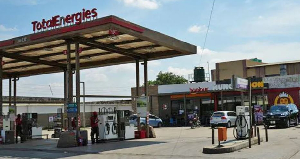The World Bank Ghana Office officially launched today a flagship energy sector report which highlights some of the daunting challenges facing Ghana's power and petroleum sub-sectors, and which threaten to undermine Ghana's bid to become a fully-fledged middle income country. Prepared by a team of World Bank staff and local experts during a period of electricity shortages and rolling power blackouts, the report highlights the potential economic damage this trend is likely to inflict on the country, at a point when Ghana's fast growing economy has evolved to become even more dependent on reliable electricity and fuel supply.
The report outlines the opportunities and challenges from managing Ghana's finite oil and gas resources, as well as, the opportunity cost of mismanaging Ghana's electricity utilities, and identifies three themes that are common to Ghana's power and petroleum sectors. First, government policies and decisions have delayed investments in gas supply and power generation, which are at the root of the current power shortages. While the blackouts are partly due to the unexpected interruption of imported gas supplies, a deeper look reveals a broader problem of a power sector without a cushion to absorb external shocks.
For instance, avoidable delays in the production of Jubilee gas have left Ghana's gas-based power plants needlessly idle or burning very expensive oil. The three-year delay in commercializing Jubilee gas has cost Ghana a billion dollars in extra crude oil used for power generation. Also, Ghana has not been able to attract substantial private investment in power generation because of the low creditworthiness of its utilities.
Private investment has been inadequate, and some projects such as the Sunon Asogli gas-only plant, are idle due to lack of gas. Second, several state-owned energy enterprises and oversight entities are underperforming. There is an absence of accountability and proper oversight and a lack of sanctions for non-performance in delivery of energy supply. Third, the current pricing/tariff and subsidy policies for energy are not financially sustainable.
Energy providers do not collect adequate revenues from users and struggle with inadequate state subsidies. As a result, they find it difficult to maintain and expand their physical infrastructure while at the same time, the burden of these subsidies weighs heavily on the nation s budget.
Addressing participants during the event, the Deputy Minister of Energy and Petroleum, Hon John Jinapor, stated that about 40% of Ghanaians belong to the middle class now, so let's take the critical decisions, and crack the whip on utility companies if necessary; Energy is not a social commodity any longer, he stressed. While solutions to these problems are well known, the challenge is to carry them out. Proactive leadership of the energy sector, both at the political and the bureaucratic levels, with a focus on efficiency and timely delivery, are crucial to Ghana's ambitions for economic growth and desire to become a major power exporter in the ECOWAS subregion.
Our concern, notes Yusupha Crookes, World Bank Country Director for Ghana, is about the ordinary self-employed dress maker or barber, who is now struggling to keep the business going; about hospital operating theaters that experience light offs in the middle of surgery; about industries that are obliged to spend huge sums to run their own generators on diesel in order to keep their production going.
A number of recommendations are made in the report, among them, the need to review existing structures to eliminate dysfunctionality; improve planning to execute new generation projects on a continuous basis to take care of the growing demand; restructure key sector utilities in both power and petroleum subsectors for better accountability, efficiency and effectiveness, and devise a strategy to debottleneck and simplify processes and speed up decisions in order to boost private sector investment in power generation.
Sunil Mathrani, Task Team Leader for the report states: the time has come to rally all stakeholders in Ghana's energy sector together to find lasting solutions to these challenges. We have to act now to avoid more dum sor dum sor (incessant power cuts) in future. The Chairperson of the event, Mr. Kwame Pianim, emphasized the need for all stakeholders in energy sector institutions to come on board and deal with one another in good faith, rather than working in silos.
Since financing the building of the Akosombo Dam in 1962, Ghana s energy sector has been a leading recipient of World Bank Group assistance over the past five decades, with IBRD, IDA and IFC contributing, between them, close to two billion dollars in loans, technical assistance and analytical work for both the power and petroleum subsectors.
Business News of Wednesday, 3 July 2013
Source: issuu.com












